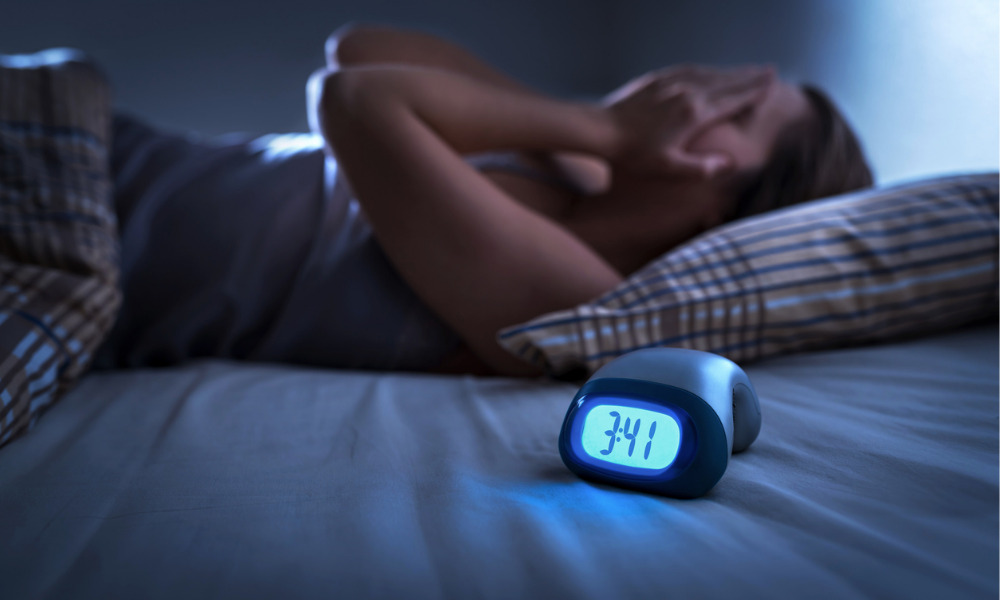
Expert says a healthy sleep culture starts at work

When it comes to living a balanced life, both at work and at home, everyone knows sleep is key. A poor night’s kip can be the difference between a brilliant day, and a terrible one. But in a post-Covid world with more people now working flexibly, is our sleep suffering?
You’d think that without the commute, more workers are opting to skip their alarm and sleep for longer. But a new study of 1,000 white-collar workers by Integrated Safety Support found almost half had suffered a decline in the quality of their sleep over the last 12 months. Women have fared worse than men, with 35% of women reporting below average sleep quality compared to 25% of men. Even more worryingly, one in five female employees said they were getting less than five hours sleep a night – far below the recommended eight hours.
Speaking to HRD, Dr Adam Fletcher, the founder of Integrated Safety Support and an ex-US military sleep researcher, said not enough business leaders are taking responsibility for creating a healthy sleep culture within their workforce.
“By supporting flexible work, businesses are essentially setting up an office in their employees’ homes, so it’s critical they put the training and processes in place to create healthy work-life balance,” he said.
“Fatigue in the workplace is a shared risk – both to safety and performance – so it's also a shared responsibility amongst management and their teams to create conditions that support healthy sleep, improve productivity and minimise fatigue.”
Read more: Sleep hygiene: Seven ways to improve employee performance
The blurred boundary between work and home has seen the working day becoming longer for many employees. Checking emails after hours and working through lunch feels like more of the done thing at home, but Fletcher said failing to maintain a barrier is a slippery slope.
The research found more than one in three workers check their emails shortly before bed, 35% work in their pyjamas and 31% work from their bed. Fletcher said these examples are some of the most common actions that blur the boundary between where work ends and home begins.
Young workers find it particularly hard to separate the two facets of their lives, in part because many live in shared accommodation and may be lacking a dedicated workspace. Employees under 25 were twice as likely to work from their bed or bedroom compared to those aged 25 and over. They were also more likely to skip meals, forgo fresh air, and work in their pyjamas.
“Working from home can be particularly difficult for younger workers, who often don’t have a dedicated workspace or live in shared houses with lots of distractions,” Dr Fletcher said.
“We recommend communicating with family and housemates to set clear boundaries around work and personal time, whether that’s scheduling who’s working from the kitchen table, or agreeing to take calls in a separate room to keep noise down.”
Read more: Struggling to sleep? Hybrid work may be damaging your slumber
Regardless of age, he said workers should stick to routines even when working from home. Creating a fake commute by taking a walk around the block in the morning or putting your laptop out of sight at the end of the workday are both examples of behaviours that can help to set clear boundaries.
While there is a level of responsibility on the employees themselves, Fletcher said it’s imperative for organisations to educate and encourage healthy sleep practices.